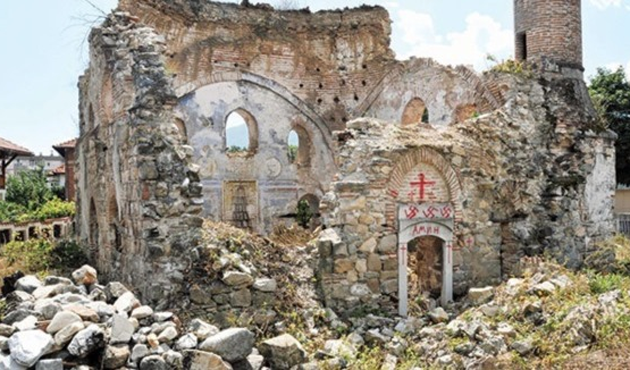Bulgaria’s National Assembly approved on June 15 the first reading of a law banning the wearing in public of clothing that completely or partly covers the face – a law tabled by the nationalist minority coalition Patriotic Front to outlaw the wearing of the burqa.
The ban will apply to Bulgarian citizens and to anyone temporarily in the country. It provides that clothing that conceals the face may not be worn in the institutions of Bulgaria’s central and local administrations, schools, cultural institutions, and places of public recreation, sports and communications. Covering the head, eyes, ears and mouth will be permitted only when necessary for health reasons, professional necessity and at sporting and cultural events. The ban will also apply to houses of worship.
The law provides for a fine of 200 leva (about 100 euro) for a first-offence violation of the ban, and for second and further offences, 1500 leva and deprivation of social benefits. Further, those who persuade others to cover their faces will face a penalty of up to three years in prison, 5000 leva and public censure. If the person persuaded to cover the face is a minor, the penalty increases to a maximum five years in prison and a fine of up to 10 000 leva.
Comment:
Bulgaria is home to the EU’s largest Muslim minority group per population totalling 13% of a 7 million population. Yet despite the presence of Muslims in the region since Ottoman Islamic rule, Bulgaria’s far right nationalist democratic parties like the Patriotic Front are adopting Western Europe’s rising xenophobic and Islamophobic policies. Bulgaria will be the fourth EU nation after France, Belgium and the Netherlands to impose a ban on face veils in public. Typical explanations surrounding such bans include so-called security concerns by preachers of ‘anti-democratic’ and ‘radical Islam’ and the arrival of refugees starting off with the first wave in 2013 from Syria, Iraq and Afghanistan via Bulgaria’s Eastern land border with Turkey.
Bulgaria’s democratically elected Prime Minister Borisov response to the refugee influx reflects not only a ‘politics of fear’ but a long withstanding historic attitude of intolerance and discrimination towards Muslims and Islam that stems back to the Communist period and its forced assimilation ‘Revival Process’ of Turkish speaking and Roma Gypsy Muslims. Borisov stated, “I’m scared and the Bulgarian people are scared, if only where religions are concerned. We are Christians, they are Muslims”. Bulgaria’s Orthodox Church leaders also called on the government not to let anymore refugee’s into the country to prevent an “invasion”. The Mayor of Pazardzhik who was one of the first political leaders to ban the face veil in his city of Pazardzhik that, “the wearing of garments concealing the face hampers the identification of people.” Consequently the “ban will increase the feeling of security among citizens”.
Manufacturing a ‘politics of fear’ by Bulgarian politicians and right wing political parties acts as a convenient scapegoat directed towards Muslims, their dress, mosques, refugees and anything else that Islam is to be blamed for and away from genuine threats that Bulgarians face due to the democracies inherent failures. These systemic failures have resulted in real threats for Bulgarians and refugees like uncontrollable organised crime and people smuggling, political, economic and judicial corruption and increased poverty and hardship. As the saying goes in Bulgaria, “Every country has a mafia in Bulgaria the mafia has a country”. US embassy cables in Bulgaria revealed by WikiLeaks also describes the extent of organised crime. Being the poorest member of the EU financial hardship and desperation has led to a wave of self-immolations in private and public places caused by the 2013 Bulgarian protests against the Borisov cabinet in early spring.
Therefore, the real threats that face the Bulgarian society stem from a failed democratic transition from communism which has only entrenched a corrupt political system led by corrupt politicians who use any opportunity to deflect such failures like a ban on the burqa.
Tsuroyya Amal Yasna

